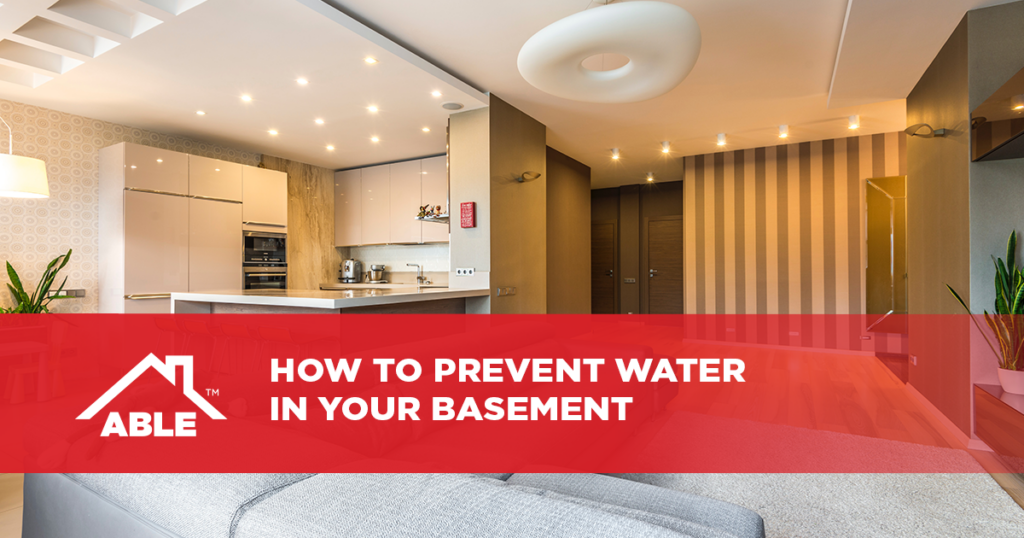No one wants to notice water getting into their basement. Unfortunately, the damage caused by a basement flood can be extensive, leading to costly repairs.
Water damage in your basement, if left unaddressed, can also lower the value of your home. Walls and flooring can be destroyed, mold could begin to grow, or roofing could be damaged, as well.
Rather than waiting for water to enter your basement and then addressing the problem, your best bet is to keep water out of your basement in the first place.
One of the top precautions you can take to protect your basement is keeping your gutters clear of debris. If gutter water is successfully diverted away from your home’s foundation, water is less likely to enter your basement.
Here are some essential precautions you can take to discourage water from entering your basement and causing damage:
Install gutter extensions
Sometimes, downspouts will dump water too close to your home—for instance, within five feet of the structure. Fortunately, you can guide the water out even further. All you need to do is install gutter extensions. Gutter extensions can come in either plastic or metal.
That being said, while gutter extensions are effective, they aren’t necessarily the best option. In the long term, it’s often better to have an underground drain pipe installed. However, in the short term, gutter extensions can still get the job done—just be careful not to damage them with a lawnmower or through other means.
Keep your gutters clear
Again, keeping your gutters clear is one of the best ways to keep water out of your basement. But why is this?
If there’s a buildup of debris (such as leaves) in your gutters, it can lead to water being diverted to undesirable locations—such as your home’s foundation. If water is directed into your foundation, it typically leads to moisture or water entering the basement. It can even increase the risk of your basement flooding.
Not only should you regularly be clearing leaves and branches from your gutters, but it’s also essential to take a closer look. If you have an asphalt roofing system, check to see if any loose particles have built up.
If your extensions or gutter straps are loose, make sure to tighten them. Then, if you find any buildup of debris or gunk in your downspouts, rinse them out using a garden hose.
Slope the ground around your home’s foundation
It’s wise to slope the ground in the opposite direction as your foundation, especially if this isn’t already the case. This is an effective way to divert rainwater away from the structure, keeping your basement protected from flooding or water damage. Generally, your best bet is to ensure that the crown of dirt surrounding your home slopes a minimum of six inches within a 10-foot radius of your house.
Get in touch with Able Roof
If you’re looking to avoid flooding, it’s a wise idea to keep your gutters and roof in good shape. The roofing experts at Able Roof can lend a hand. Are you in Central Ohio and want to repair or replace your gutters or roof? Get in touch with Able Roof today. You can start by requesting a free estimate.








